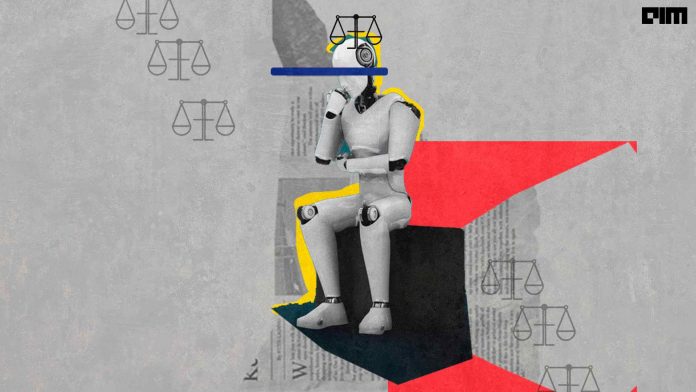Success in creating AI would be the biggest event in human history. Unfortunately, it might also be the last, unless we learn how to avoid the risks.
The AI deployment is moving at a warp speed on the back of giant technological strides and growing investment in the sector. “As AI systems become increasingly more capable, it becomes critical to measure and understand the ways in which they can perpetuate harm,” said Helen Ngo, an AI Index-affiliated researcher and co-author of Stanford University’s AI index report 2022.
With artificial intelligence becoming pervasive across all walks of life, it is critical to understand and create awareness about this technology’s ethical challenges and potential risks. To that end, top institutions have started courses on AI ethics. We list the best below:
The course focuses on how traditional philosophical models like utilitarianism, virtue ethics and other key modalities of applied ethics have evolved to embrace algorithmic tracking and intelligence augmentation of AI. The introductory course teaches how to incorporate AI into the innovation process of businesses holistically. The lesson plan also has recommendations on who should implement these ideas within the organisation.
For details, click here.
The introductory course covers the basic concepts of AI ethics and addresses ethical issues around the adoption of AI in our everyday life.
The first section discusses critical questions like what differentiates AI from other types of machine learning and if the development of AI is a pressing ethical matter. The second section tackles the ethical questions regarding creating artificial intelligence: Questions like is it morally permissible to create artificial intelligence? Is it morally permissible to destroy an artificial intelligence? When would an artificial intelligence possess moral status? etc are deliberated.
The third section looks at the philosophical issues surrounding the design of ethical AI. The module explores rule-based approaches (e.g. Asimov’s Three Laws of Robotics), bottom-up approaches, and top-down approaches to designing ethical AI. The fourth section looks at if AI inherently poses a threat to humans and if it is possible to align our existential aims with those of an AI. Finally, the fifth section revolves around the ethics of specific AI use cases. It delves into the ethical problems regarding automated war drones, autonomous vehicles, sex robots, and AI healthcare diagnostics.
The course consists of an intensive teaching week in Oxford and will be fully supported online via a Virtual Learning Environment.
For details, click here.
The free online course from the University of Helsinki is for anyone who is interested in the ethical aspects of AI and wants to learn what can and cannot be done to develop AI in an ethically sustainable way. The course will teach how to combine ethical concepts and theories with AI by doing practical exercises. The course consists of seven chapters.
For details, click here.
The three-week online masterclass will look into AI technologies’ ethical challenges and opportunities. The participants will apply concepts such as fairness, inequality, and transparency to real-world situations to understand and resolve ethical dilemmas arising from AI systems. The course will also look at how AI can be used in hiring, employee supervision and how discrimination and power imbalances can impact an organisation.
The Department of Philosophy, Logic and Scientific Method offers the course and requires a commitment of 6-8 hours per week.
For details, click here.
The one-hour on-demand video certification course from Udemy has three sections. The first part discusses the history of ethics, ethics in business, and the five most common principles. The second part discusses ethics in the context of AI and has interviews with founders worldwide. The next section looks at principles from governments and leaders and compares them to the five traditional pillars to establish a framework for the ethics roadmap. The course is designed for people working with data and AI technologies.
For details, click here.
Funded by The Data Lab and the Data-Driven Innovation initiative, the course explores the social, political, legal and ethical issues with data-driven innovation, AI and ML systems. The case studies in the syllabus will focus on fairness, bias, data reuse, data privacy and protection, among others.
The course looks into the social implications of data-based contexts such as facial recognition, predictive policing, medical screening, smart homes and cities, banking, and AI. It also discusses the tools required to minimise harm, promote fairness, safeguard and increase human autonomy and well-being.
For details, click here.
Workshop, Virtual
Accelerate Python* for data science and machine learning
22nd Apr
Workshop, Virtual
Supercharge Data Analytics
26th Apr
Conference, Virtual
Data Engineering Summit 2022
30th Apr
Webinar
Speed up deep learning inference
13th May
Conference, in-person (Bangalore)
MachineCon 2022
24th Jun
Conference, in-person (Bangalore)
Cypher 2022
21-23rd Sep
Stay Connected with a larger ecosystem of data science and ML Professionals
Discover special offers, top stories, upcoming events, and more.
Stay up to date with our latest news, receive exclusive deals, and more.
© Analytics India Magazine Pvt Ltd 2022
Terms of use
Privacy Policy
Copyright






